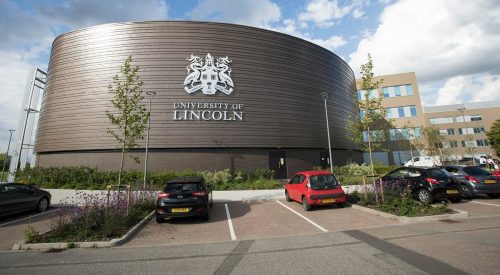Over 200 jobs at risk as university plans £30m cuts

Strike action is looming at an East Midlands university after unions said that over 200 jobs were under threat.
The University and College Union (UCU) says that one in ten academic staff at the University of Lincoln could lose their jobs as “brutal” cuts take hold.
In total, the union says that 220 employees could lose their jobs. It says the cuts include the phasing out of the fashion degree and ending specialist support for widening participation students in the foundation studies centre. The centre’s teaching team have been notified their jobs are at risk, according to UCU.
The union says that the university posted a £3m operating surplus and had £46m in cash reserves in its 2022/23 annual results. However, a directive has been issued outlining a plan to find £30m in cost savings by the end of the 2025 financial year.
A consultation on potential redundancies started on Monday (April 22).
However, a spokesperson for the university told TheBusinessDesk.com: “On the 220 figure stated by UCU it’s important to note that it is inclusive of voluntary severance and will be of voluntary redundancy, we are doing everything we can to avoid compulsory redundancies. We will continue to jointly engage with the trades unions to run a transparent voluntary redundancy scheme in the hope that we avoid the need for compulsory redundancies.”
However, an emergency meeting called by UCU attended by 150 staff resulted in its Lincoln branch committee calling upon university management to immediately renounce any plans for compulsory redundancies to avert campus disruptions.
UCU Lincoln acting chair Dr Rob Dean said: “It is simply impossible to slash so many jobs without severely impacting current students, future students and diminishing the university’s vital role as a cornerstone of regional education. Furthermore, not only are many people in danger of losing their jobs, but we are also extremely concerned that those remaining will be left with unmanageable workloads.
“Without a transparent assessment of past decisions and a commitment to accountability, there is a risk of perpetuating the same errors, endangering the institution’s future stability.
“However, the impact of this extends beyond the confines of academia. The local economy will also be affected. In a small city like Lincoln the number of proposed cuts threaten to undermine the socioeconomic fabric of the region, exacerbating existing challenges and inequalities.”
The spokesperson for the university pointed out to us that universities across the country are being placed under financial pressure by the ongoing freeze in UK undergraduate tuition fees and recent immigration policy changes which are deterring international students.
They added: “The University of Lincoln is not immune to these headwinds and we are having to take steps to reduce our base budgets in 2024/25 in the face of rising costs and stalling real-terms income.
“As a key employer and driver of economic, cultural and societal improvement in the region, we know we need to be fit for the future. Ignoring the current headwinds would be to let down a large number of people. The University is too important to our students, staff, and local communities to risk doing otherwise and we will keep making the positive impact this region relies upon us to make.
“Minimising job losses, supporting our staff, and protecting the student experience will be absolute priorities as we seek to find the right size and shape for the University to continue to be successful in the future.
“The University opened a Voluntary Severance scheme and will be launching a Voluntary Redundancy scheme as part of the ongoing effort to reduce costs amid these growing pressures facing the UK higher education sector.
“Universities no longer receive sufficient income to teach British teenagers as they expect and recover less than three quarters of the cost of doing government funded research. Teaching and research are universities’ core activities and the source of the value they bring to our society and economy. As the income provided by international student fees falls away, almost half of UK universities are forecasting deficits this year.
“While we cannot fix higher education’s faulty funding system, we can ensure our university navigates this precarious period facing the sector and continues supporting the aspirations of people across our region.”









